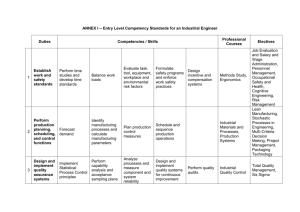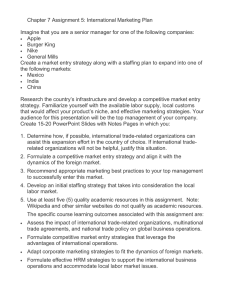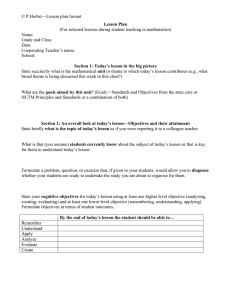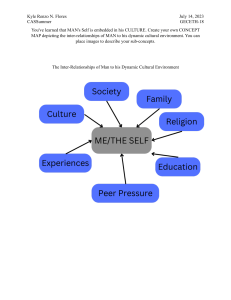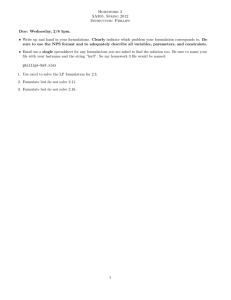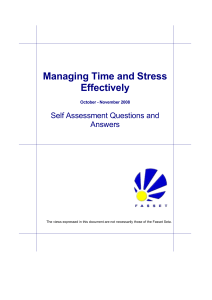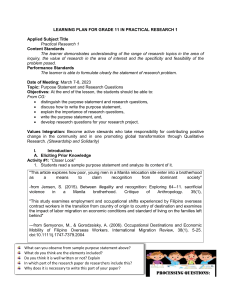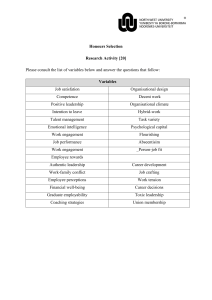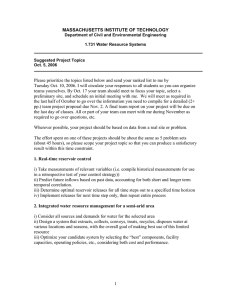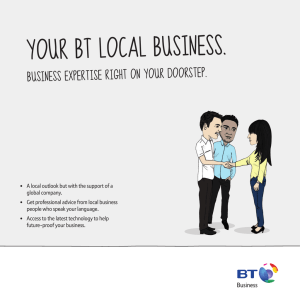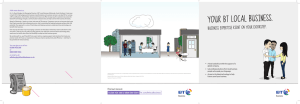WILMINGTON UNIVERSITY COLLEGE OF TECHNOLOGY BASIC COURSE INFORMATION COURSE TITLE:
advertisement
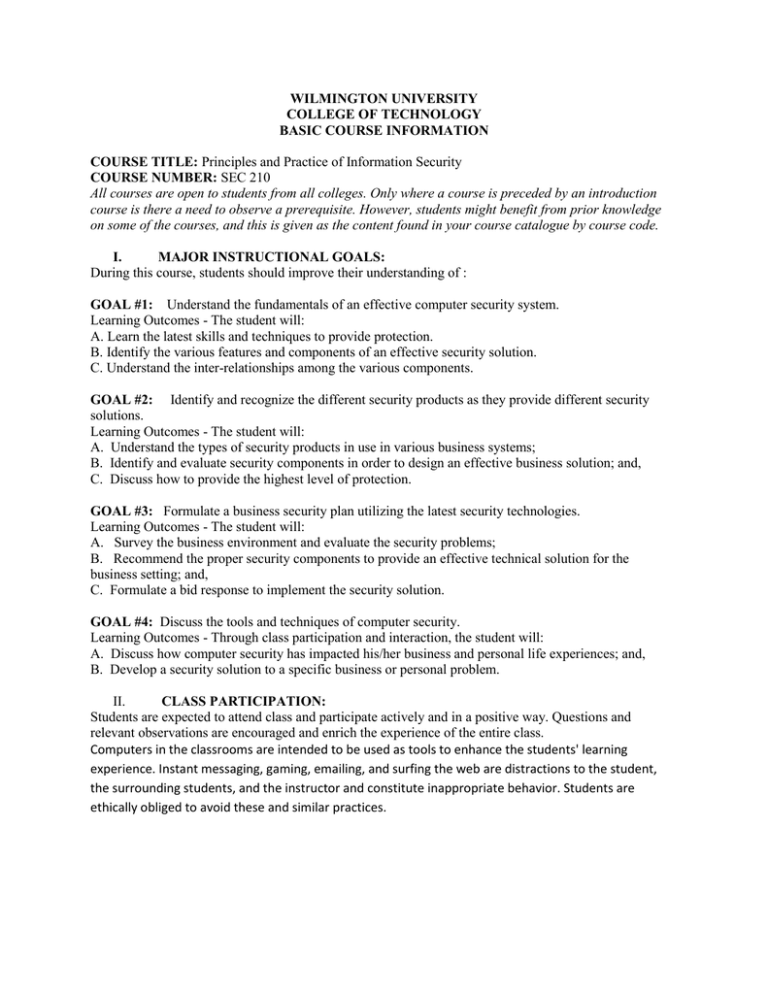
WILMINGTON UNIVERSITY COLLEGE OF TECHNOLOGY BASIC COURSE INFORMATION COURSE TITLE: Principles and Practice of Information Security COURSE NUMBER: SEC 210 All courses are open to students from all colleges. Only where a course is preceded by an introduction course is there a need to observe a prerequisite. However, students might benefit from prior knowledge on some of the courses, and this is given as the content found in your course catalogue by course code. I. MAJOR INSTRUCTIONAL GOALS: During this course, students should improve their understanding of : GOAL #1: Understand the fundamentals of an effective computer security system. Learning Outcomes - The student will: A. Learn the latest skills and techniques to provide protection. B. Identify the various features and components of an effective security solution. C. Understand the inter-relationships among the various components. GOAL #2: Identify and recognize the different security products as they provide different security solutions. Learning Outcomes - The student will: A. Understand the types of security products in use in various business systems; B. Identify and evaluate security components in order to design an effective business solution; and, C. Discuss how to provide the highest level of protection. GOAL #3: Formulate a business security plan utilizing the latest security technologies. Learning Outcomes - The student will: A. Survey the business environment and evaluate the security problems; B. Recommend the proper security components to provide an effective technical solution for the business setting; and, C. Formulate a bid response to implement the security solution. GOAL #4: Discuss the tools and techniques of computer security. Learning Outcomes - Through class participation and interaction, the student will: A. Discuss how computer security has impacted his/her business and personal life experiences; and, B. Develop a security solution to a specific business or personal problem. II. CLASS PARTICIPATION: Students are expected to attend class and participate actively and in a positive way. Questions and relevant observations are encouraged and enrich the experience of the entire class. Computers in the classrooms are intended to be used as tools to enhance the students' learning experience. Instant messaging, gaming, emailing, and surfing the web are distractions to the student, the surrounding students, and the instructor and constitute inappropriate behavior. Students are ethically obliged to avoid these and similar practices.
